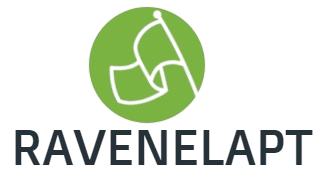When you’re searching out the best mortgage, you might feel like you’re in over your head. If you do, then it’s important that you learn a few more things before you start signing that stack of papers. You’re making a decision that lasts for years and years, and you want to be well-informed.
Remember that the interest rate isn’t the most important part of a mortgage. You also have to think about closing costs, points and other incidentals. There are different kinds of loan as well. That is why you have to find out as much as you can about what you’re eligible for.
Regardless of how much of a loan you’re pre-approved for, know how much you can afford to spend on a home. Write out your budget. Include all your known expenses and leave a little extra for unforeseeable expenses that may pop up. Do not buy a more expensive home than you can afford.
Prepare your paperwork before applying for a mortgage. There are many items that a lender will require. These items include the last two or three years worth of tax returns, copies of each of your monthly credit card statements and installment loans. Three months bank statements and two months worth of pay stubs are also needed for approval.
The value of your property may have increased or decreased since you got your original loan. There are many things that can negatively impact your home’s value.
Refinancing a home mortgage when interest rates are low can save you thousands of dollars on your mortgage. You may even be able to shorten the term of your loan from 30 years to 15 years and still have a monthly payment that is affordable. You can then pay your home off sooner.
When financing a house, giving a large down payment will result in a lower mortgage rate. This is due to the fact that a big down payment will reduce your loan to value ratio. When the loan to value ratio gets lower, the interest rates become more favorable for the home buyer.
Understand the difference between a mortgage broker and a mortgage lender. There is an important distinction that you need to be aware of so you can make the best choice for your situation. A mortgage broker is a middle man, who helps you shop for loans from several different lenders. A mortgage lender is the direct source for a loan.
Do not allow a denial from the first company stop you from seeking a mortgage with someone else. One lender’s denial does not doom your prospects. Keep shopping around to check out your options. You might need to recruit a co-signer, but you will likely find a mortgage you can handle.
Having a strong employment history will make it easier to qualify for a home mortgage. Lenders like to see that you have been at the same job for a good length of time. Barring that, they like to see continuous employment for at leas the past five or more years.
If you are a retired person in the process of getting a mortgage, get a 30 year fixed loan if possible. Even though your home may never be paid off in your lifetime, your payments will be lower. Since you will be living on a fixed income, it is important that your payments stay as low as possible and do not change.
Be honest when it comes to reporting your financials to a potential lender. Chances are the truth will come out during their vetting process anyway, so it’s not worth wasting the time. And if your mortgage does go through anyway, you’ll be stuck with a home you really can’t afford. It’s a lose/lose either way.
Be realistic when choosing a home. Just because your lender pre-approves you for a certain amount doesn’t mean that’s the amount you can afford. Look at your income and your budget realistically and choose a home with payments that are within your means. This will save you a lifetime of stress in the long run.
Many lenders now require a home to be inspected before the loan is approved. Although this costs a small amount of money, it can save you thousands in unknown expenses. If the home inspector finds problems with the home, you have the opportunity to either negate the contract or to renegotiate the sales price.
Most financial institutions require that the property taxes and insurance payments be escrowed. This means the extra amount is added onto your monthly mortgage payment and the payments are made by the institution when they are due. This is convenient, but you also give up any interest you could have collected on the money during the year.
One item of documentation for home mortgage application that is often overlooked is a gift letter. If your relatives have chipped in to help you make your down payment, you may need to document your source of income. This really depends on the type of home mortgage you get. Some require this, and others do not. Play it safe by getting a gift letter from anyone who gives you money to help you buy your home. Have this on file with your other documentation.
The only way to get a better rate is to ask for one. You won’t get your home loan paid off if you lack courage. Just keep in mind that they’ve dealt with being asked this in the past and all they can do is tell you no. This means you have nothing to lose!
Keep with you the great advice that you’ve read so that you don’t wind up on the short end of the stick when it comes to a mortgage. You want to be able to make the right selection. So, start your search, and use everything you’ve learned. There is no excuse for saddling up with the wrong mortgage company.



